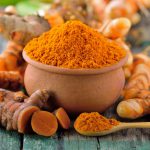Your liver silently works day and night, filtering toxins, processing nutrients, and maintaining overall balance.…
Read MoreAloe vera plant has been used for its medicinal, skincare, and health benefits for centuries across the world. Greek healers considered it the panacea for all ills over 2000 years ago, while the Egyptians called it the “the plant of immortality”. And of course, it has a valued place in the ancient science of ayurveda.
Aloe vera has a long history of use in ayurveda. Known as kumari or grita kumari, this beneficial plant is thought to balance all three doshas – vata, pitta, and kapha. It has a tikta (bitter) taste and is considered to have the qualities of guru (heaviness), snigdha (oily, unctuous), and picchila (sticky, slimy). It is considered to have a wide range of therapeutic uses:
Today, aloe vera is a popular ingredient in skincare products and moisturizing lotions. But did you know that aloe vera juice can also offer many benefits? Let’s take a closer look at what drinking aloe vera juice – prepared from the transparent gel within its leaves – can offer us.
While preparing the juice make sure that you do not use the latex (the yellowish sap present in the leaf) as it can have harmful side effects. When aloe vera juice is prepared commercially the latex is usually washed away or phenolic compounds present in it are filtered out with activated carbon in a process known as decolourization.[1][Processing methods for Aloe vera leaf]. The International Aloe Science Council.
Let’s look at aloe vera juice benefits for overall health:
The clear gel present in aloe vera leaves is rich in beneficial compounds such as glucomannans, lipids, amino acids, vitamins, and sterols. It contains vitamin A, vitamin E, vitamin C, folic acid, and B-Group vitamins including vitamin B12. It also contains 19 of the 20 amino acids that we need.[2]Rajeswari, R., M. Umadevi, C. Sharmila Rahale, R. Pushpa, S. Selvavenkadesh, KP Sampath Kumar, and Debjit Bhowmik. “Aloe vera: the miracle plant its medicinal and traditional uses in … Continue reading [3] Surjushe, Amar, Resham Vasani, and D. G. Saple. “Aloe vera: a short review.” Indian journal of dermatology 53, no. 4 (2008): 163.
Aloe vera can help with wound healing. Researchers have found that mannose-6-phosphate, which is a sugar present in aloe gel, improves wound healing in animal studies. This compound also exhibits anti-inflammatory properties.[4]Davis, Robert H., J. J. Donato, Glenn M. Hartman, and Richard C. Haas. “Anti-inflammatory and wound healing activity of a growth substance in Aloe vera.” Journal of the American Podiatric … Continue reading So, if you’re prone to nicks and cuts, a little aloe vera juice can help you heal better.
Inflammatory bowel disease (IBD) is a term used to describe conditions which involve inflammation of the gut such as ulcerative colitis and Crohn’s disease. People suffering from IBD can experience symptoms like abdominal cramps or pain, bloody or recurring diarrhoea, extreme weight loss, tiredness etc.[5][Inflammatory bowel disease].NHS. Research indicates that aloe vera gel has an anti-inflammatory effect on the colon which makes aloe vera for weight loss a viable remedy.[6]Langmead, Louise, Richard J. Makins, and David S. Rampton. “Anti‐inflammatory effects of aloe vera gel in human colorectal mucosa in vitro.” Alimentary pharmacology & therapeutics … Continue reading
Diabetes is a growing concern with some 422 million people across the world suffering from it.[7][Diabetes].World Health Organization. Managing diabetes is one of the key aloe vera juice benefits.
One study found that drinking aloe vera juice (1 tablespoon) twice a day for two weeks lowered blood sugar in people with diabetes. It also lowered triglyceride levels. Triglycerides are a kind of fat present in your blood. High levels of triglycerides can increase your chances of a heart attack, stroke, and heart disease.[8]Yongchaiyudha, S., V. Rungpitarangsi, N. Bunyapraphatsara, and O. Chokechaijaroenporn. “Antidiabetic activity of Aloe vera L. juice. I. Clinical trial in new cases of diabetes mellitus.” … Continue reading [9][ Triglycerides: Why do they matter?].Mayo Clinic.
Irritable bowel syndrome is a common condition characterized by symptoms such as abdominal pain, cramping, bloating, constipation or diarrhoea, or both.[10][Irritable bowel syndrome]. Mayo Clinic. One study found that drinking aloe vera juice twice a day reduced flatulence as well as abdominal pain and discomfort in people suffering from irritable bowel syndrome.[11]Khedmat, Hossein, Ashraf Karbasi, Mohsen Amini, Aghdas Aghaei, and Saeed Taheri. “Aloe vera in treatment of refractory irritable bowel syndrome: Trial on Iranian patients.” Journal of … Continue reading Ayurveda practitioners caution patients with symptoms of diarrhoea from consuming aloe vera. They recommend it only for those that display constipation symptoms.
Aloe vera gel has been found to act against a wide variety of germs including bacteria which cause tooth decay and foodborne diseases. Interestingly, it also exhibits antimicrobial activity against multidrug-resistant bacteria. However, do keep in mind that you shouldn’t try to treat yourself at home with aloe vera juice if you catch an infection. It’s best to consult a doctor who will recommend the appropriate treatment for you.[12]Bałan, Barbara Joanna, Marcin Niemcewicz, Janusz Kocik, Leszek Jung, Ewa Skopińska-Różewska, and Piotr Skopiński. “Oral administration of Aloe vera gel, anti-microbial and … Continue reading
Infection by a bacteria known as Helicobacter pylori (H. pylori) is a common cause of peptic ulcers. This bacteria can damage the lining of your stomach and small intestine. And a damaged lining allows for the creation of an ulcer (or open sore) by your stomach acid.[13][Helicobacter pylori (H. pylori) infection].Mayo Clinic. But research indicates that aloe vera gel can act against Helicobacter pylori. Your doctor may recommend drinking aloe vera juice along with antibiotics to deal with an H. pylori gastric infection.[14]Radha, Maharjan H., and Nampoothiri P. Laxmipriya. “Evaluation of biological properties and clinical effectiveness of Aloe vera: A systematic review.” Journal of traditional and … Continue reading
A strong immune system helps your body fight infections. And aloe vera juice can help support your immune system. Research indicates that it stimulates cellular and can increase the production of antibodies. Polysaccharides such as mannose-6-phosphate and acemannan present in aloe vera gel are thought to be responsible for their immunomodulatory activity.[15]Bałan, Barbara Joanna, Marcin Niemcewicz, Janusz Kocik, Leszek Jung, Ewa Skopińska-Różewska, and Piotr Skopiński. “Oral administration of Aloe vera gel, anti-microbial and … Continue reading
The topical application of aloe vera can help with a wide range of conditions:
References
| ↑1 | [Processing methods for Aloe vera leaf]. The International Aloe Science Council. |
|---|---|
| ↑2 | Rajeswari, R., M. Umadevi, C. Sharmila Rahale, R. Pushpa, S. Selvavenkadesh, KP Sampath Kumar, and Debjit Bhowmik. “Aloe vera: the miracle plant its medicinal and traditional uses in India.” Journal of Pharmacognosy and Phytochemistry 1, no. 4 (2012): 118-124. |
| ↑3 | Surjushe, Amar, Resham Vasani, and D. G. Saple. “Aloe vera: a short review.” Indian journal of dermatology 53, no. 4 (2008): 163. |
| ↑4 | Davis, Robert H., J. J. Donato, Glenn M. Hartman, and Richard C. Haas. “Anti-inflammatory and wound healing activity of a growth substance in Aloe vera.” Journal of the American Podiatric Medical Association 84, no. 2 (1994): 77-81. |
| ↑5 | [Inflammatory bowel disease].NHS. |
| ↑6 | Langmead, Louise, Richard J. Makins, and David S. Rampton. “Anti‐inflammatory effects of aloe vera gel in human colorectal mucosa in vitro.” Alimentary pharmacology & therapeutics 19, no. 5 (2004): 521-527. |
| ↑7 | [Diabetes].World Health Organization. |
| ↑8 | Yongchaiyudha, S., V. Rungpitarangsi, N. Bunyapraphatsara, and O. Chokechaijaroenporn. “Antidiabetic activity of Aloe vera L. juice. I. Clinical trial in new cases of diabetes mellitus.” Phytomedicine 3, no. 3 (1996): 241-243. |
| ↑9 | [ Triglycerides: Why do they matter?].Mayo Clinic. |
| ↑10 | [Irritable bowel syndrome]. Mayo Clinic. |
| ↑11 | Khedmat, Hossein, Ashraf Karbasi, Mohsen Amini, Aghdas Aghaei, and Saeed Taheri. “Aloe vera in treatment of refractory irritable bowel syndrome: Trial on Iranian patients.” Journal of Research in Medical Sciences 18, no. 8 (2013): 732-732. |
| ↑12, ↑15 | Bałan, Barbara Joanna, Marcin Niemcewicz, Janusz Kocik, Leszek Jung, Ewa Skopińska-Różewska, and Piotr Skopiński. “Oral administration of Aloe vera gel, anti-microbial and anti-inflammatory herbal remedy, stimulates cell-mediated immunity and antibody production in a mouse model.” Central-European journal of immunology 39, no. 2 (2014): 125. |
| ↑13 | [Helicobacter pylori (H. pylori) infection].Mayo Clinic. |
| ↑14 | Radha, Maharjan H., and Nampoothiri P. Laxmipriya. “Evaluation of biological properties and clinical effectiveness of Aloe vera: A systematic review.” Journal of traditional and complementary medicine 5, no. 1 (2015): 21-26. |
| ↑16 | [Aloe Vera].National Institutes of Health. |
| ↑17, ↑18 | [Aloe].Mayo Clinic. |
| ↑19 | [Aloe Vera]. National Institutes of Health. |


Dr. Anand R Dwivedi is an Ayurevedacharya from Mumbai University, 1987. He has been practicing Ayurveda since 1988. He has a special interest in the treatment of chronic illnesses with the help of Ayurveda. He has been associated with Kapiva since 2015 and helping people lead a well-balanced lifestyle through his deep knowledge of Ayurveda.

Your liver silently works day and night, filtering toxins, processing nutrients, and maintaining overall balance.…
Read More
We’ve all been there, reaching for chips, chocolate, or that extra serving of dessert after…
Read More
We know that the way we feel and our overall wellness is intrinsically connected to…
Read More
Turmeric has been used medicinally for nearly 4000 years. Many bioactive compounds such as curcuminoids,…
Read More